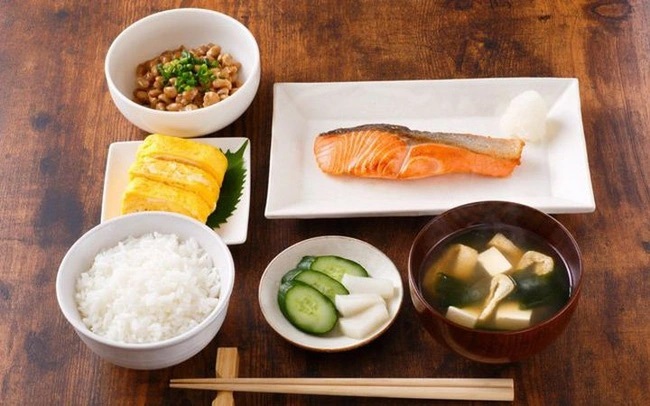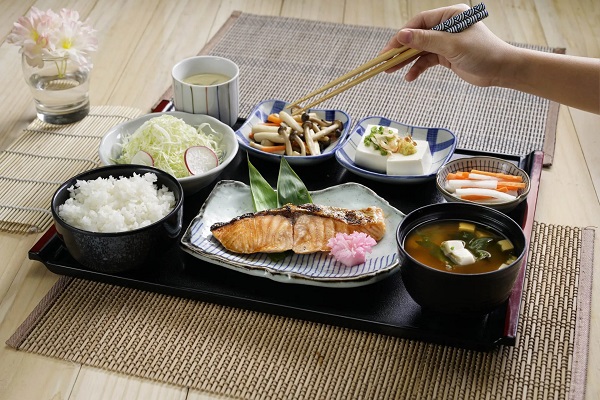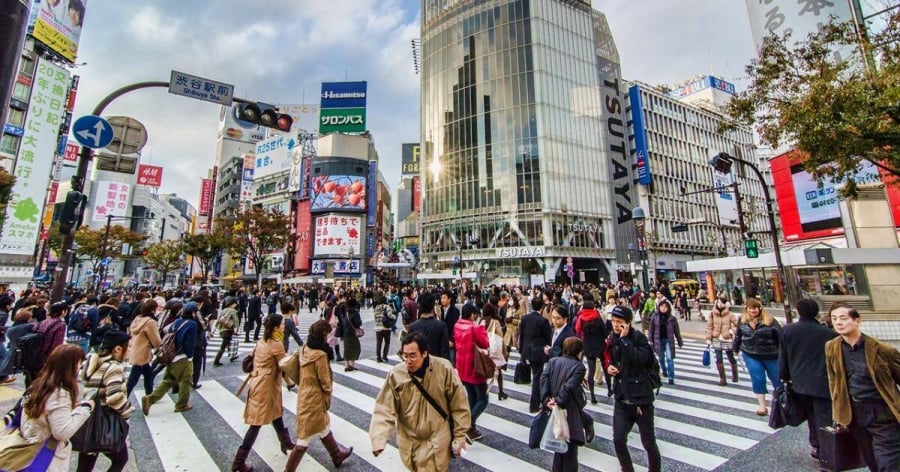Japan is one of the countries with the highest life expectancy in the world. According to experts, longevity depends on two factors: diet and exercise. In fact, the Japanese are not particularly fond of sports and physical activity. The Lancet medical journal has reported that Japan ranks 11th on the list of the laziest countries in the world, with over 60% of the population being physically inactive.
So why are Japanese people still slim and live long?
Eating Raw, Boiled, and Steamed Foods
Japanese people often eat low-calorie foods, use fewer spices, and limit fat intake. Their food preparation method is relatively simple, mainly focusing on steaming, boiling, or eating raw to preserve the original nutrients and flavors of the ingredients.

Japanese people also enjoy fried foods such as tempura (seafood and vegetables dipped in batter and deep-fried). Before eating, these dishes are usually drained of excess oil using specialized paper.
Diverse Food Choices, Eating More Fish
Japanese people highly value eating three meals a day. The most common foods on their dining tables are fish and vegetables. They emphasize the diversity and freshness of ingredients, rarely using processed foods.
In the Healthy Eating Guidelines, the Japanese Ministry of Health has recommended consuming 30 different types of ingredients each day. Typical Japanese dishes include steamed fish, grilled fish, tofu, boiled vegetables, miso soup, pickles, seaweed, and rice.
In Japan, there is a wide variety of fish and seafood, which are often more affordable than red meat. Being an island nation, Japanese people have developed a habit of eating more fish. This is beneficial for the body, as fish is rich in nutrients and healthy fats, while red meat can lead to obesity.
Serving Food on Small Plates and Eating Until 80% Full

Japanese people can have multiple dishes in one meal, but the portion size of each dish is typically small.
Traditional Japanese dinners are usually served on small plates. This helps them control the amount of food they consume.
In addition, Japanese people have a habit of chewing their food slowly and stopping eating when they are about 80% full. This benefits the digestion and absorption process of the stomach, providing a longer-lasting feeling of fullness. Eating until 80% full helps prevent overeating while still ensuring sufficient energy and nutrients for the body.
Having a Proper Breakfast
For Japanese people, breakfast plays a crucial role. They usually have the habit of eating breakfast at home.
Japan has a fast-paced lifestyle, but people don’t have the habit of buying fast food. Many people prepare lunch boxes to eat during their lunch break and limit eating out.
Walking and Cycling

Walking and cycling are common forms of transportation in Japan. People often walk or cycle to train stations and bus stops instead of using private cars or expensive taxis.
Walking and cycling help keep the body flexible and accelerate the calorie-burning process.
Living Environment
Japan is one of the countries with a relatively clean and less noisy living environment. Japanese people avoid honking horns and speaking loudly on the streets.
Environmental pollution has a certain impact on the liver and lungs. On the other hand, noise pollution can lead to increased blood pressure and cardiovascular diseases.
Unlock 8 Benefits with a Daily 5-Minute Jog
Living a hectic lifestyle can make fitting in time to exercise difficult. However, studies have revealed that even just 5 minutes of jogging a day can lead to positive outcomes for your health, including a decrease in the risk of developing cardiovascular disease, extending your life span by up to 3 years, or even reducing the susceptibility to heart disease.





































